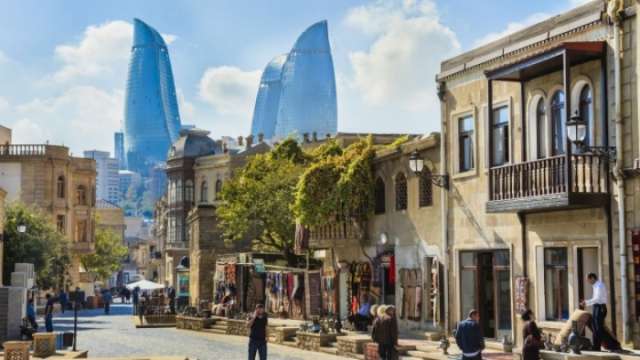I sat in disbelief over the past few months, watching reports of tombstones being turned over, graves being defiled, and other anti-Semitic acts.
To cite two widely reported incidents, an estimated 75-100 tombstones were overturned in the Mt. Carmel Cemetery in the Wissinoming neighborhood of Philadelphia. A week before that, 100 headstones at the Chesed Shel Emeth Society cemetery in the St. Louis suburb of University City were overturned.
After reading the headlines about these events, it was almost as if I were suffering from a sort of religious post-traumatic stress.
And it wasn’t just me. In my community in Los Angeles, many people, both young and old, have asked me: Why this, why now? Anti-Semitic acts are deeply troubling and concerning, not only for the Jewish community but other faith communities as well.
I have struggled as a faith leader to explain hatred and intolerance, and have often referred to our holy books when trying to provide an answer. One piece of scripture in particular that I have looked to is Leviticus 19:18. This excerpt from the Torah is widely quoted but so rarely acted upon. It tells us to “love your neighbor as yourself.”
While acts of hate and intolerance are on the rise in so many places, there is a small country located in the Caucasus Mountains that strives to follow the words of this scripture and that has been a beacon of tolerance for centuries.
Nearly two years ago I wandered the streets of the predominantly Muslim country of Azerbaijan wearing an overt symbol of my Jewish faith – a kippah. My kippah wasn’t met with stares or ugly words – it was accepted and greeted with kindness. This is but one instance of religious tolerance I experienced during my trip, but it speaks volumes to Azerbaijan’s culture of embracing and welcoming all religious minorities within its borders.
I had traveled there to meet with leaders across the faith spectrum and to spend time with the diverse Jewish communities in Azerbaijan. Among the 30,000 Jews who live in the country, the Mountain Jews have a very long history, tracing their origin back thousands of years. After the destruction of the First Temple in 587 BCE, Jews are said to have settled in the area of southern Azerbaijan, now the northwestern part of Iran, later relocating to the territory of the present-day Republic of Azerbaijan.
The country of Azerbaijan, in addition to its Muslim and Jewish groups, has a small but active Christian population. These faith communities have lived side by side in peace for hundreds of years despite Azerbaijan’s location in a volatile neighborhood not usually known for religious tolerance.
With Iran to the south, Russia to the north, and the Middle East close by, Azerbaijan exists in a powder keg. Despite this, the nation is one of the few majority Muslim countries to have developed strong bilateral and economic relations with Israel. This is an anomaly in a region that doesn’t do much to mask its disdain for the Jewish state.
The United States is the land of liberty, opportunity, and tolerance; it is crucial that we show the world that, like Azerbaijan, we can live peacefully and tolerantly with each other. One way to do this is to nurture our relationship with Azerbaijan. In a world where intolerance is a potent and growing threat, Azerbaijan has something vital to teach. It is time for the world to take notice of this small, accepting country that wants a legacy not of enmity but of embrace.
The strong relationship Azerbaijan has crafted with Israel may seem counterintuitive given Azerbaijan’s 97 percent Muslim population. But the Azerbaijan-Israel relationship shows that nations can overcome differences and engage multilaterally with one another to espouse an agenda of tolerance and peace.
In Los Angeles I have made it a point to work collaboratively with other faith leaders, representatives of local governments, and diplomats from other countries to find answers to problems of hate and intolerance and provide catalysts for change. We are working toward creating a community that accepts – and indeed celebrates – our differences.
Dr. Martin Luther King Jr. said, “I refuse to accept the view that mankind is so tragically bound to the starless midnight of racism and war that the bright daybreak of peace and brotherhood can never become a reality.… I believe that unarmed truth and unconditional love will have the final word.”
While I am disheartened by the recent acts of anti-Semitism in the U.S., I remain confident that the vast majority of Americans will not stand for such hate crimes. In these divisive times, we should focus on our common humanity rather than what separates us.
We can take a lesson from a small country in the South Caucuses that lives peacefully within its borders, remains tolerant in a dangerous and polarizing region, and as a Muslim-majority country cultivates its relationship with Israel.
More about: #Azerbaijan
















































